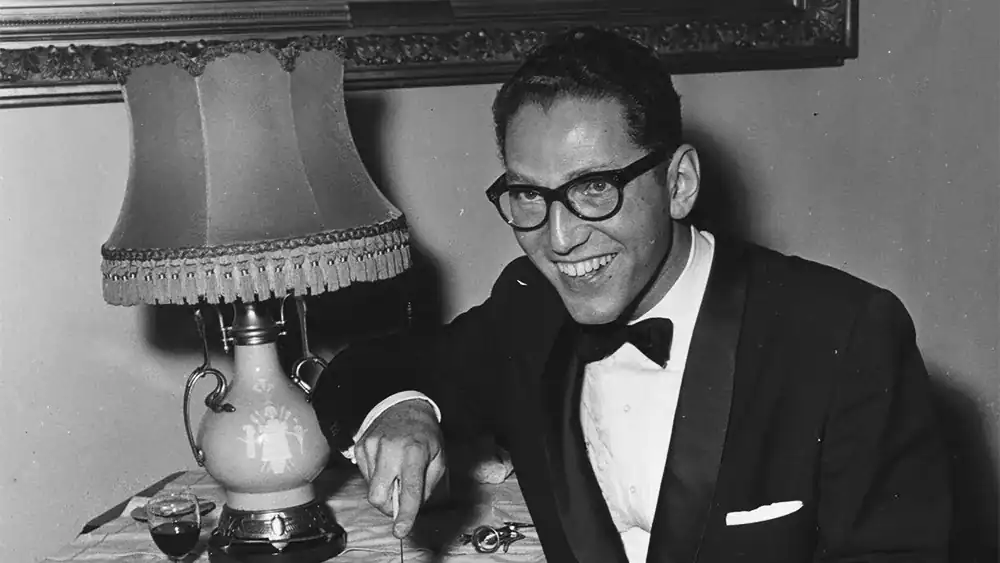By Chris Morris (Rewritten Version)
Tom Lehrer, the renowned satirical singer, songwriter, and pianist, who gained national recognition in the 1960s through his sharp, witty songs featured on the television satire That Was the Week That Was, has died at the age of 97.
the renowned satirical singer, songwriter, and pianist, who gained national recognition in the 1960s through his sharp, witty songs featured on the television satire That Was the Week That Was, has died at the age of 97.
He was discovered at his home in Cambridge, Massachusetts, on Saturday, according to close friends.
Lehrer first gained attention in the early 1950s through two self-produced albums that quickly found a cult following. Though widely known for his music, his main profession was academia—he taught mathematics at prestigious institutions including Harvard University and later at the University of California, Santa Cruz. With his signature wit, Lehrer once told a live audience, “It’s not like I have to do this for a living. I could be earning $3,000 a year just teaching.”
Although music brought him public fame, Lehrer spent most of his life committed to education.
Often credited as a pioneer of musical black comedy, Lehrer’s clever and bold commentary during the conservative Eisenhower era influenced later humorists and musicians like Randy Newman, Harry Shearer, and “Weird Al” Yankovic.
A slim man with glasses and a dry delivery, Lehrer tackled topics that were often considered taboo at the time. His songs satirized themes like sexuality (“The Masochism Tango”), drug culture (“The Old Dope Peddler”), homosexuality in youth organizations (“Be Prepared”), and military propaganda (“It Makes a Fellow Proud to Be a Soldier”). His collaboration with NBC’s U.S. version of That Was the Week That Was propelled him to wider fame, thanks to his biting lyrical contributions.
His 1965 album That Was the Year That Was, released by Reprise Records, peaked at number 18 on the U.S. charts. It featured incisive songs targeting racism (“National Brotherhood Week”), nuclear arms (“So Long Mom”), religious institutions (“The Vatican Rag”), and even mathematics education (“The New Math”).
Born in New York City into a Jewish family, Lehrer began piano lessons at the age of 7. A gifted classical pianist with a fondness for American popular music, he eventually became known for his ability to perform across various musical genres.
A child prodigy in mathematics, Lehrer entered Harvard College at just 15 and graduated magna cum laude in 1946. He earned his master’s degree a year later and spent over a decade pursuing his Ph.D. He taught at Harvard, MIT, and Wellesley before eventually settling at UC Santa Cruz. His satirical song “Fight Fiercely, Harvard” poked fun at his alma mater’s elitist image.
In 1953, Lehrer recorded his debut album Songs by Tom Lehrer for just $40 in a Boston studio. The album, which depicted him on the cover as a devil playing piano in hell, became a sleeper hit—selling 10,000 copies primarily through word-of-mouth on college campuses.
His second album, More of Tom Lehrer, arrived in 1959 following his stint in the U.S. Army. It included fan favorites such as “The Elements” (a fast-paced rendition of the periodic table to the tune of Gilbert and Sullivan), “The Masochism Tango,” and the morbidly funny “Poisoning Pigeons in the Park.” This collection led Time magazine to group Lehrer with then-edgy comedians like Mort Sahl and Lenny Bruce.
A live version of this material, An Evening Wasted with Tom Lehrer, was recorded at Harvard and released shortly after. His debut album was also re-recorded in 1966 for a broader audience.

Despite remaining largely in academia, Lehrer occasionally toured internationally, performing his satirical songs live to enthusiastic audiences. He maintained his teaching responsibilities while continuing to write music on the side.
In the 1970s, he contributed to the PBS show The Electric Company and supported George McGovern’s presidential campaign in 1972 by performing at fundraisers. After that, he returned fully to teaching math and musical theater at UC Santa Cruz, stepping away from the public stage.
Though retired from performing, his work remained relevant and beloved. His songs were regularly played on The Dr. Demento Show, and a musical revue of his work, Tomfoolery, premiered in London in 1980. A complete box set of his work, The Remains of Tom Lehrer, was released by Rhino Records in 2000. Shout! Factory later digitized his recordings and released a DVD of his 1967 concert in Oslo, Norway.
Lehrer never married and had no children. His legacy lives on through the sharp wit and bold creativity that made him one of the most influential musical satirists of the 20th century.



